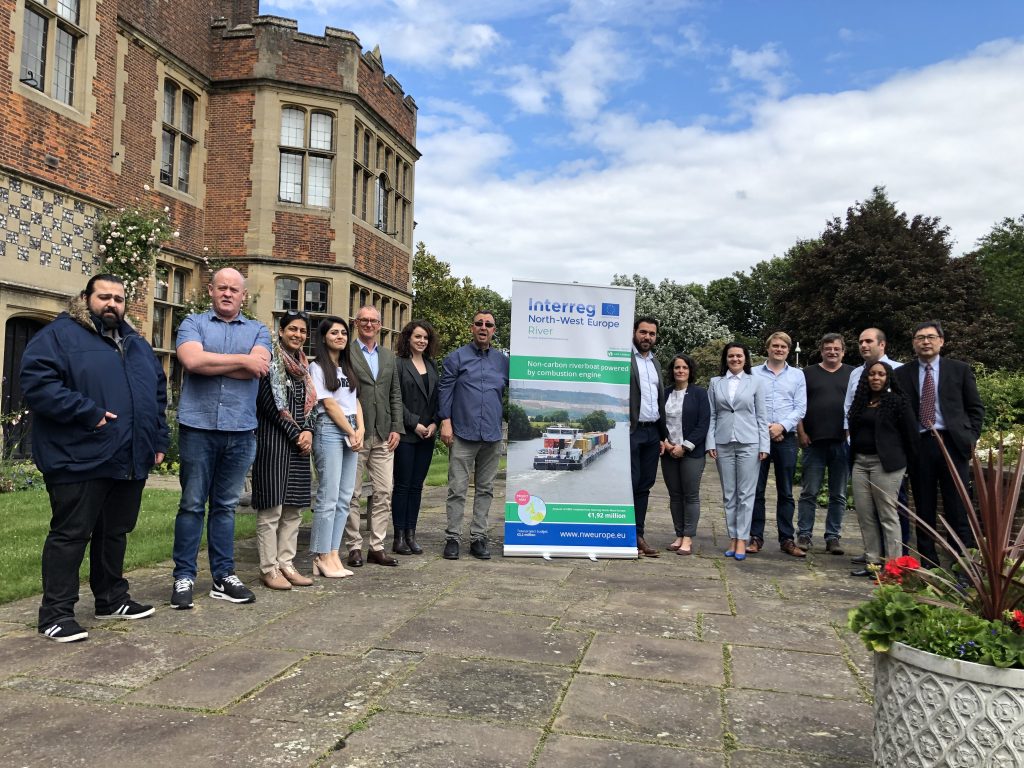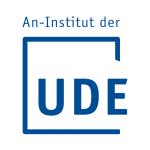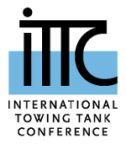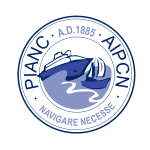RIVER – Non-Carbon River Boat Powered by Combustion Engines
Motivation und Ziele
Motiviert durch die strenger gewordenen Grenzwerte für CO2-Emissionen gemäß der EU-Verordnung 2016/1628 und die Richtlinie zur Typgenehmigung von Verbrennungsmotoren für mobile Arbeitsmaschinen (Richtlinie 97/68/EG, 01/2017), befasst sich das RIVER-Projekt mit der Entwicklung eines Diesel-Verbrennungsverfahren unter Zugabe eines Sauerstoff-Gas Gemischs (Oxyfuel-Combustion) in Kombination mit einer CO2-Erfassung und Lagerungstechnologie (Carbon Capture & Storage Technology, kurz CCS). Das Hauptziel des Projekts RIVER ist die Entwicklung eines umweltfreundlichen Antriebskonzepts für Binnenschiffe ohne direkte CO2-Emissionen. Das abgeschiedene CO2 wird in einem Tank unter Druck gespeichert und kann anschließend im Labormaßstab auf molekularer Ebene in weiterverwendbare Produkte, wie z. B. Kosmetika, umgewandelt werden. Im Rahmen des Projekts wird ein spezieller Prüfstand zur Untersuchung der Technologie entwickelt. Zur Demonstration wird die gesamte Technologie dann in ein reales, kleines Binnenschiff integriert und in Großbritannien betrieben. Darüber hinaus wird eine Machbarkeitsstudie für die Integration der Technik in ein kommerzielles Frachtschiff durchgeführt.
Kurzer Überblick über die Technologie
Der wichtigste Teil des Antriebsstrangsystems ist der Motor, der Abgas und Sauerstoff anstelle von Luft mit Diesel mischt und verbrennt. CO2 und Wasser werden ohne NOx freigesetzt. Durch den Einsatz eines Kondensators können CO2 und Wasserdampf leicht getrennt werden und ermöglichen die Lagerung von abgeschiedenem CO2.
Sauerstoff und Kraftstoff bilden den so genannten Oxy-Fuel, der dem Homogeneous Charge Compression Ignition (HCCI) Dieselmotor zugeführt wird. Der zugeführte Sauerstoff könnte an Bord in einer Hochdruck-Sauerstoffflasche gespeichert werden. Sein Verbrauch hängt vom Betriebszustand des Motors ab. Aus dem Abgasstrom wird Wasser auskondensiert. Das überschüssige CO2 wird komprimiert und gespeichert. Diese Technologie eliminiert die NOx-Emissionen und reduziert erheblich die Partikelemissionen.
Projektpartner und Beitrag des DST
Das Projekt umfasst 9 Partner aus 5 Mitgliedsstaaten und 5 assoziierte Partner. Die Partner haben Erfahrung in den Bereichen CCS, Oxyfuel-Motoren, CO2-Behandlung, Motorsteuerung und Schiffsentwicklung im Umfeld der Binnenschifffahrt.
Der Hauptbeitrag vom DST ist die Integration des Oxyfuel-Verbrennungsmotors und des CO2-Abscheidungs- und Speicherungssystems in ein reales (kleines) Binnenschiff. Für das Schiff werden mögliche Systemkonfigurationen identifiziert, untersucht und mit einem konventionellen Dieselmotoransatz in Bezug auf erforderliche Tankinhalte (zusätzliche Gewichte und Volumen), Kraftstoffverbrauch und mechanische Leistungsverteilung verglichen. Außerdem führt das DST eine Machbarkeitsstudie für den Einsatz der entwickelten Technologie auf einem konventionellen Frachtschiff durch. Technische und finanzielle Barrieren werden identifiziert. Darüber hinaus profitiert das Projekt von der Expertise des DST und seinem bestehenden Netzwerk in der Binnenschifffahrtsbranche.
RIVER ist Teil des EU-Forschungsprogramms „Territorial Cooperation“ und wird vom Europäischen Fond für regionale Entwicklung Interreg NWE finanziert. Die endgültigen Ergebnisse sind im Dezember 2020 zu erwarten.
https://www.nweurope.eu/about-the-programme/what-is-interreg-nwe/
Für weitere Informationen und aktuelle Nachrichten besuchen Sie bitte:
https://www.nweurope.eu/projects/project-search/river-non-carbon-river-boat-powered-by-combustion-engines/
Laufzeit: September 2017 – Dezember 2020
Ansprechpartner:
Dipl.-Ing. Jens Ley, Tel.: 0203 99369-30
Dipl.-Ing. Klaus Bieker, Tel. 0203 99369-36




